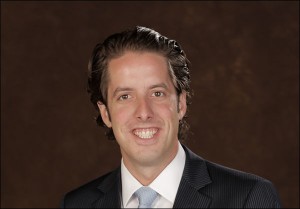ON THE DEFENSIVE: The dangers of John Doe
By: Anthony Cotton//December 2, 2014//

In Franz Kafka’s book, “The Trial,” a man is prosecuted by a remote, inaccessible authority, with the nature of his crime revealed neither to him nor the reader.
The book conjures images of sinister forces, unaccountable to the public, conspiring to hone in on him.
The theme of the book resonates as strongly today as ever. Prosecutors have amassed powers and tools that were inconceivable even a generation ago.
The National Security Agency actions exposed by Edward Snowden were part of that picture, giving us reason to reflect on the relationship between the police, government and its citizens.
One powerful prosecutorial tool, which seems to have almost no check on it, is the power to wage a John Doe investigation. Those amoeba-like investigations can start out in one form and slowly alter their shape based on the direction sought by the prosecutor.
In early November, Attorney Christopher Wiesmueller filed a federal lawsuit against Neal Nettesheim, the judge presiding over the John Doe proceedings involving Gov. Scott Walker and his subordinates. Wiesmueller’s lawsuit challenges, in part, the foundation of the John Doe procedure.
John Doe proceedings give prosecutors immense power with which they can compel testimony and statements. Although the proceedings ostensibly are cloaked in secrecy, a prosecutor can subpoena a witness to appear in front of a judge and give sworn testimony. If the individual refuses, he or she can be offered immunity by that same prosecutor.
For prosecutors, there are advantages to conducting investigations in that manner.
First, a judge provides oversight, which, to some extent, insulates the prosecutor from public criticism if charges are brought. Second, because witnesses are questioned under oath, any change in story carries with it the potential threat of a perjury prosecution. That makes the criminal case stronger by rendering the witness’ testimony nearly unassailable.
Wiesmueller’s challenge raises broader questions about prosecutorial overreaching and the danger of conferring too much power on those involved in the secret proceedings.
As part of their function, judges involved in the process are asked to sign off on search warrants. The warrants result in evidence being collected against those who are the targets of the proceeding.
The features of a John Doe proceeding are strikingly similar to the features of an inquisitorial system. The judge becomes involved in investigating the facts of the case.
The Founding Fathers were wary of too much power being vested in one particular branch. The Fourth Amendment was drafted to give citizens a shield against law enforcement overreaching.
If the police want a search warrant, they have to present their evidence to a neutral and detached magistrate. In the John Doe process, however, that judge may not be detached because he or she has been exposed to extraneous information throughout the investigation.
Now that those in power are witnessing firsthand the potential for John Doe abuse, reform may be on the horizon.
Legal News
- History made in Trump New York trial opening statements
- Prosecutor won’t bring charges against Wisconsin lawmaker over fundraising scheme
- Republican Wisconsin Senate candidate says he doesn’t oppose elderly people voting
- Vice President Harris to reveal final rules mandating minimum standards for nursing home staffing
- Election workers fear threats to their safety as November nears
- Former law enforcement praise state’s response brief in Steven Avery case
- Eric Toney announces re-election bid for Fond du Lac County District Attorney
- Former Wisconsin Democratic Rep. Peter Barca announces new bid for Congress
- Republicans file lawsuit challenging Evers’s partial vetoes to literacy bill
- More human remains believed those of missing woman wash up on Milwaukee Co. beach
- Vice President Harris returning to Wisconsin for third visit this year
- Wisconsin joins Feds, dozens of states to hold airlines accountable for bad behavior
WLJ People
- Power 30 Personal Injury Attorneys – Russell Nicolet
- Power 30 Personal Injury Attorneys – Benjamin Nicolet
- Power 30 Personal Injury Attorneys – Dustin T. Woehl
- Power 30 Personal Injury Attorneys – Katherine Metzger
- Power 30 Personal Injury Attorneys – Joseph Ryan
- Power 30 Personal Injury Attorneys – James M. Ryan
- Power 30 Personal Injury Attorneys – Dana Wachs
- Power 30 Personal Injury Attorneys – Mark L. Thomsen
- Power 30 Personal Injury Attorneys – Matthew Lein
- Power 30 Personal Injury Attorneys – Jeffrey A. Pitman
- Power 30 Personal Injury Attorneys – William Pemberton
- Power 30 Personal Injury Attorneys – Howard S. Sicula








